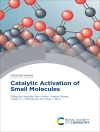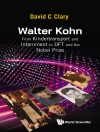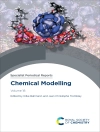Nanoscience is one of the most exciting areas of modern physical science as it encompasses a range of techniques rather than a single discipline. It stretches across the whole spectrum of science including: medicine and health, physics, engineering and chemistry. Providing a deep understanding of the behaviour of matter at the scale of individual atoms and molecules, it provides a crucial step towards future applications of nanotechnology. The remarkable improvements in both theoretical methods and computational techniques make it possible for modern computational nanoscience to achieve a new level of chemical accuracy. It is now a discipline capable of leading and guiding experimental efforts rather than just following others. Computational Nanoscience addresses modern challenges in computational science, within the context of the rapidly evolving field of nanotechnology. It satisfies the need for a comprehensive, yet concise and up-to-date, survey of new developments and applications presented by the world’s leading academics. It documents major, recent advances in scientific computation, mathematical models and theory development that specifically target the applications in nanotechnology. Suitable for theoreticians, researchers and students, the book shows readers what computational nanoscience can achieve, and how it may be applied in their own work. The twelve chapters cover topics including the concepts behind recent breakthroughs, the development of cutting edge simulation tools, and the variety of new applications.
Spis treści
Algorithms for Predicting the Physical Properties of Nanocrystals and Large Clusters; Rational Design of Mixed Nanoclusters: Metal Shells Supported and Shaped by Molecular Cores; Self-assembly of Nanoclusters: an Energy Landscape Perspective; Phase Transition under Confinement; Simulating Thermo-Mechanical Phenomena of Nanoscale Systems; Computational Electrodynamics Methods; Large Scale Electronic Transport Calculations; Theoretical Strategies for Functionalization and Encapsulation of Nanotubes; Density Functional Calculations of NMR Chemical Shifts in Carbon Nanotubes; Computational Study of the Formation of Inorganic Nanotubes; Native and Irradiation-induced Defects in Graphene: What Can we Learn from Atomistic Simulations?; The Atomic-, Nano-, and Meso-scale Origins of Graphite’s Response to Energetic Particles
O autorze
Walter Thiel studied chemistry at the University of Marburg (West Germany) from 1966 to 1971, where he subsequently obtained his doctorate with A. Schweig in 1973. After a post-doctoral stint at the University of Texas at Austin with M. J. S. Dewar (1973–1975), he obtained his habilitation from the University of Marburg in 1981. He was appointed Professor of Theoretical Chemistry at the University of Wuppertal (West Germany) in 1983 and Professor of Chemistry at the University of Zurich (Switzerland) in 1992. In 1987 he was a visiting professor at the University of California at Berkeley. Since 1999, he is a director at the Max Planck Institute for Coal Research in Mülheim an der Ruhr (Germany) and an honorary professor at the neighbouring University of Düsseldorf (Germany) since 2001.












